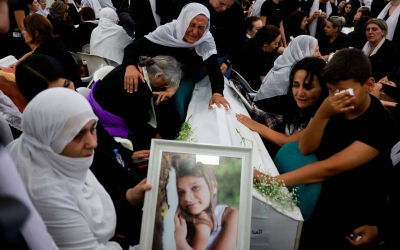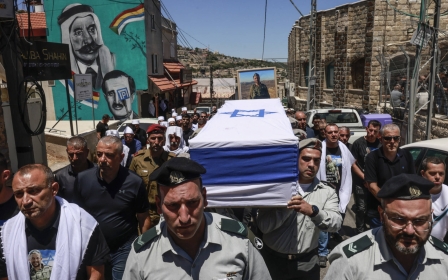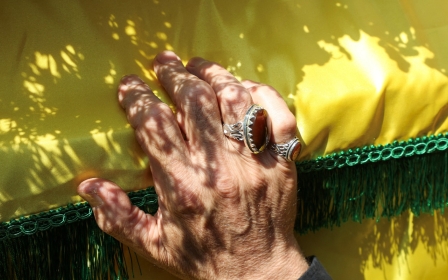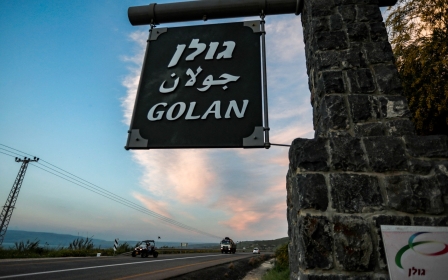Hezbollah says it will 'definitely respond' to any Israeli attack
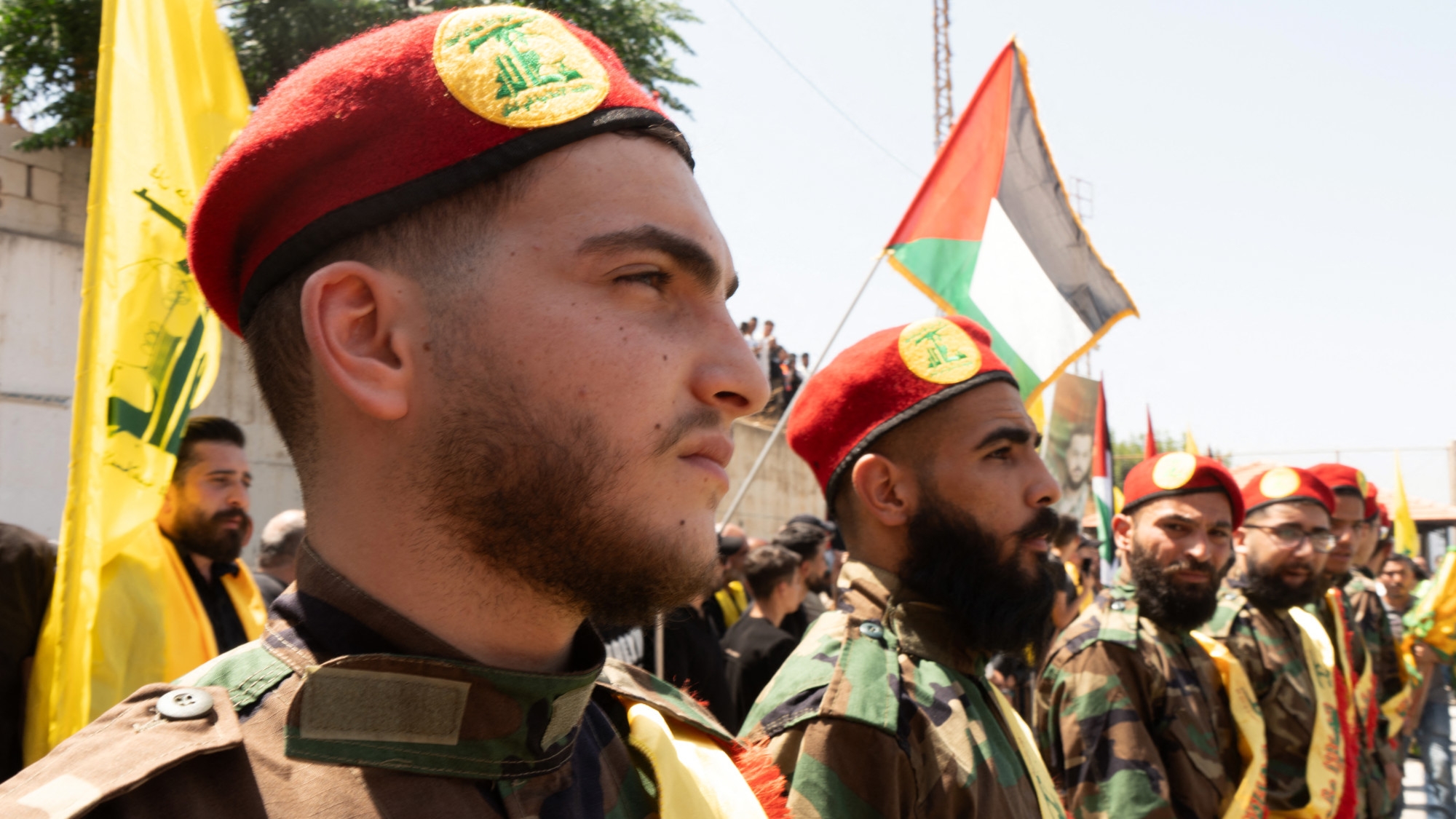
Hezbollah is taking Israel’s threats of a “severe” attack seriously and will respond accordingly, a senior source in the Lebanese group has said.
The unnamed official, speaking to Al Jazeera on Tuesday, said Hezbollah will treat any attack as an aggression regardless of how it may be described by Israeli officials as “limited but significant”.
The source told the Qatar-based news network that intermediaries requested Hezbollah not to respond to the expected Israeli attack, but the group refused.
“We will definitely respond to any Israeli aggression,” the source said.
“The resistance leadership will decide the form and size of the response to any potential aggression.”
New MEE newsletter: Jerusalem Dispatch
Sign up to get the latest insights and analysis on Israel-Palestine, alongside Turkey Unpacked and other MEE newsletters
Additionally, the source said Hezbollah does not expect a ground Israeli incursion into southern Lebanon.
However, if Israel takes this step, it will be an incentive for the Lebanese group to “place our first step in the Galilee”.
The comments come as Israeli officials threaten to attack Lebanon in retaliation to a strike that killed 12 Syrian teenagers in the occupied Golan Heights on the weekend.
Israel blamed Hezbollah for the strike but the Lebanese group vehemently denied responsibility.
During a visit to the strike location in Majdal Shams on Monday, Israeli Prime Minister Benjamin Netanyahu said: “Israel will not and cannot let this simply pass. Our response will come, and it will be harsh.”
Residents of the region, who are denied Israeli citizenship, protested against Netanyahu’s visit, with some calling him a “murderer” as he arrived.
Shortly after the visit, some residents released a statement denouncing what they called incitement by Israeli officials to justify more bloodshed in their name.
The statement, issued by the Religious and Temporal Commission, rejected calls for retaliation.
“[The Golan rejects] attempts to exploit Majdal Shams' name as a political platform, at the expense of the blood of our children, and the issuing of statements [on their behalf] without authorisation,” the commission said.
“Based on our Arab, Islamic, monotheistic beliefs, we reject that a single drop of blood be shed under the name of revenge for our children.”
Fears of full-blown war
Meanwhile, fears of an all-out regional war as a result of a potential Israeli attack remain high.
According to Reuters, the US has been leading diplomatic efforts to sway Israel from bombing Beirut or major civil infrastructure, to avoid further escalation.
"If they avoid civilians and they avoid Beirut and its suburbs, then their attack could be well calculated," said Lebanon's deputy parliament speaker, Elias Bou Saab.
However, Israel has not made any commitment to avoid bombing Beirut or civil infrastructure, sources told Reuters.
Separately, Israeli officials told the news agency they wanted to "hurt Hezbollah but not drag the Middle East into all-out war".
Amid the heightened tensions, many countries have urged their citizens to leave Lebanon as major international airlines suspended flights to Beirut.
Italian Prime Minister Giorgia Meloni on Tuesday became the latest world leader to express concern over the potential of full-blown war.
Meloni called on Israel not to fall into the "trap" of retaliation and called for continued diplomatic effort to avoid an escalation.
Middle East Eye delivers independent and unrivalled coverage and analysis of the Middle East, North Africa and beyond. To learn more about republishing this content and the associated fees, please fill out this form. More about MEE can be found here.


